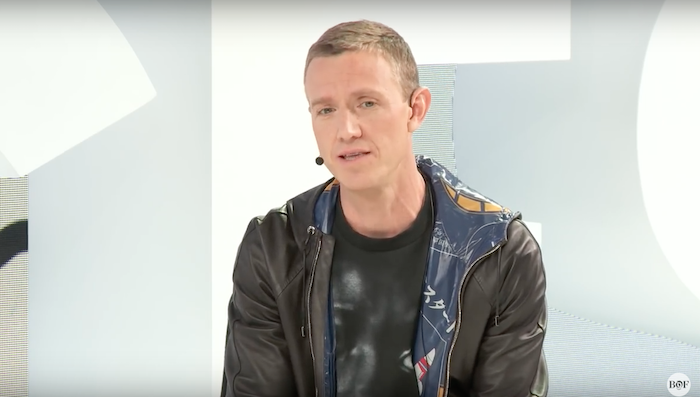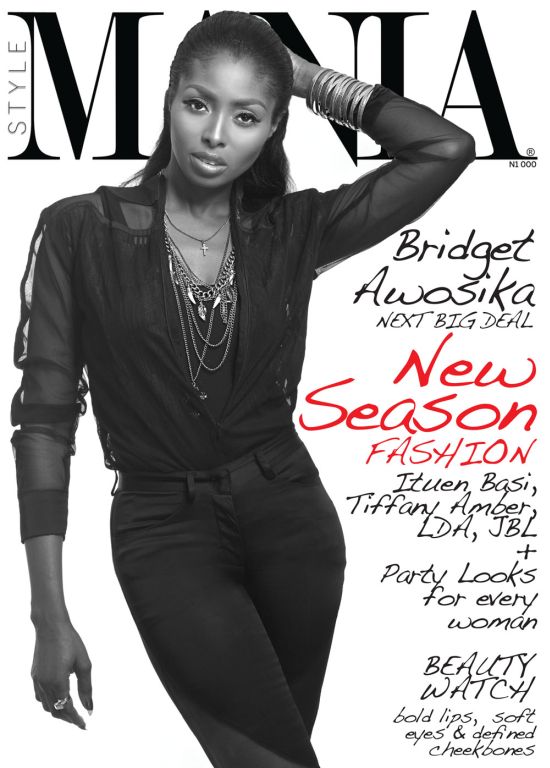 Photography is a complicated world on its own. The photographer sees things from a different perspective from the persons photographed. However, both are very important in moving fashion in Nigeria to the place it deserves to be, both from the high fashion to street style. LadybrilleNigeria.com caught up with Mr. Ophori, an up and coming Nigerian photographer who has been to diverse places in the years he has spent in photography. Ophori opens up, in this exclusive, about his journey so far ans why he loves street photography/documentary so much. Learn, appreciate and enjoy.
Photography is a complicated world on its own. The photographer sees things from a different perspective from the persons photographed. However, both are very important in moving fashion in Nigeria to the place it deserves to be, both from the high fashion to street style. LadybrilleNigeria.com caught up with Mr. Ophori, an up and coming Nigerian photographer who has been to diverse places in the years he has spent in photography. Ophori opens up, in this exclusive, about his journey so far ans why he loves street photography/documentary so much. Learn, appreciate and enjoy.
LADYBRILLENIGERIA.COM: Welcome Mr. Ophori, we grabbed this opportunity to interview you because we have noticed that you are one gentleman that has had quite a journey in photography and wanted to get more from you. First of all, let me ask, how many siblings do you have? Tell us about your family and childhood experiences.
IO: All in all we are six, but I lost my mom and the last born on the same day.
LADYBRILLENigeria.com: (Sorry for your losses)
IO: (He continues) Well, I am the fourth child out of seven children. We originate from Ughelli South Local Government, Delta state. My childhood experiences varies greatly from my time spent in the military barracks to the time spent with my grandmother in the Delta state
LADYBRILLENIGERIA.COM: Tell us about where you grew up and how it influenced your photography?
>IO: Well I grew up in different parts of Nigeria. I was born in the North during the 70s and then later moved to Lagos in the late 70s. In the early 90s, I traveled to the Niger Delta. Therefore I will say Ughelli because I went to Secondary school there. I was always out in the streets and going to the farm with my grandmother. Those play a huge role in my street and nature documentary.
LADYBRILLENIGERIA.COM: Are there any particular experiences that you would like to relieve, especially about when you started out photography as a child?
IO: Yes. My family believed that the only thing to photography was taking pictures at parties. A lot of them complained but I continued with what I loved, street documentary.
LADYBRILLENIGERIA.COM: So how did you get your first camera? Who got it for you?
IO: I got my first camera from the money I was supposed to use to buy a university form. It was my uncle who gave me the money.
LADYBRILLENIGERIA.COM:What is so special about street photography that caught your attention from the very beginning of your career and journey?
IO: It’s simply the way things happen in the streets naturally.
LADYBRILLENIGERIA.COM: Have you always wanted to be only a photographer?
IO: Yes
LADYBRILLENIGERIA.COM: So how did you carve a niche for yourself in photography? How did you find your specialization?
IO: I must confess, in this country there is nothing like specialisation in photography.
LADYBRILLENIGERIA.COM: (Okay. Let’s talk about your work) Tell us about your signature work “The Flying Eyo” Am I right? Do you have any other work after 2008 that you think is better than this work?
IO: I got “The Flying Eyo” in 2008 at the Abuja Cultural Carnival. I have a lot that I think are better like the Bible site picture I took in Isoko Delta State.
LADYBRILLENIGERIA.COM: How do people react when they see you walking around with a camera and snapping photographs? Do you manage to blend with the people so they don’t realize you or you make your presence felt?
IO: Sometimes they are harsh, sometimes they feel free. You know people have different minds when they see you taking pictures.
LADYBRILLENIGERIA.COM: We have noticed something special and different in your photographs that we cannot put a finger on. Can you do us the honours of telling us what you look out for before you take a photograph?
IO: To tell the future story or to make people feel the impact even after the moment when the photograph was taken.
LADYBRILLENIGERIA.COM: Now this is a question I love to ask photographers: Do you like being photographed and why?
IO: Yes and its because I want to see myself being documented.
LADYBRILLENIGERIA.COM: Tell us more about street photography. Why such a drive for street photography? Is it the growing up that influenced it or an experience? What exactly is the driving force?
IO: We all live in the streets from the President to the common man, from the rich to the poor and the old as well the young. Everyone stays or does one thing or the other in the streets.
LADYBRILLENIGERIA.COM: We are aware that you have worked for a number of magazines and newspapers, can you mention them?
IO: Niger Delta Standard Newspaper, a regional based media house in the Niger Delta region, Gliterrati magazine and 234next on Sunday to mention a few.
LADYBRILLENIGERIA.COM: Why did you become a photojournalist among other things? Did you think it would help you achieve more of street photography? And do you think your photogrphy has benefited from entering photojournalism?
IO: Being a journalist makes you think more like a documentary photographer and it makes you do more of everyday life and achieve more.
LADYBRILLENIGERIA.COM: So now what kind of photography do you focus on more?
IO: The cultural documentary of our colourful world especially in Africa.
LADYBRILLENIGERIA.COM: Tell us about the P.A.P.A? Am I right? What is the full mane for it and how do you think being a part of this initiative has benefited your photography?
IO:P.A.P.A is a Holland based artist initiative with means “Participating Artists Press Agency”. It showcased me to the entire world when we had our workshop and exhibition.
LADYBRILLENIGERIA.COM: How do you work? Do you always have your camera with you to snap pictures spontaneously or you plan to take your camera to an event and photograph?
IO: I plan but at times as a photojournalist, you don’t expect to plan for somethings to happen before you take photographs.
LADYBRILLENIGERIA.COM: What are some of the challenges you have faced in achieving your dream of being a photographer?
IO: A lot, like finances and challenges from even family and friends.
LADYBRILLENIGERIA.COM: Have family and friends been supportive on your drive?
IO: Not all of them
LADYBRILLENIGERIA.COM: What was the reaction of your parents when you first told them that you were going to become a photographer?
IO: I stayed with my uncle because I lost my dad at a very young age. But my uncle also didn’t believe in photography and the rest of my family wasn’t too happy for me. But recently, I have been putting a smile on their faces.
LADYBRILLENIGERIA.COM: Do you think photography in Nigeria is stagnated or it is being supported?
IO: I think it is supported and it isn’t stagnated in any way but it is still growing.
LADYBRILLENIGERIA.COM: Tell us about the Nigeria Photography Awards 2011 and your views concerning the event.
IO: Well, I must give my support to anything related to photography in Nigeria but I thought that the nominees were not well projected in my opinion.
LADYBRILLENIGERIA.COM: Tell us the feelings you go through when you miss a photograph you thought would be perfect to take? And what about your feelings when you actually manage to capture the image you wanted to capture?
IO: In the first instance I feel bad and in the second, I’m happy.
LADYBRILLENIGERIA.COM: Are you a married man or single man?
IO: I am single and searching.
LADYBRILLENIGERIA.COM: Do you want to be considered as street photographer or as a photo journalist or both?
IO: As both a street photographer and a photojournalist.
LADYBRILLENIGERIA.COM: Tell us about your influences. Who’s work has inspired you the most?
IO: They are Mudi Yahaha, George Esiri, Don Baba, Tam Fiofori
LADYBRILLENIGERIA.COM:How many of these people have you met?
IO: All of them
LADYBRILLENIGERIA.COM: Did you learn your art from a teacher or you learnt on your own?
IO: I learnt it myself because I read a lot.
LADYBRILLENIGERIA.COM: Finally, tell us how in your journey as a photographer you have been able to give a voice to the voiceless on the streets.
IO: From my works. I am still planning a solo exhibition where a large part of the money I raise would go to the voiceless in the streets.
-Priscilla Bamfo
-Courtesy photos Israel Ophori
Founded in 2007, Ladybrille® Magazine is a California based pioneer digital publication demystifying the image of Africans in the west through contemporary African fashion and celebrating the brilliant woman in business and leadership, with an emphasis on the African woman in the diaspora. Our coverage includes stories on capital, access to markets, expertise, hiring and retention, sales, marketing, and promotions.













